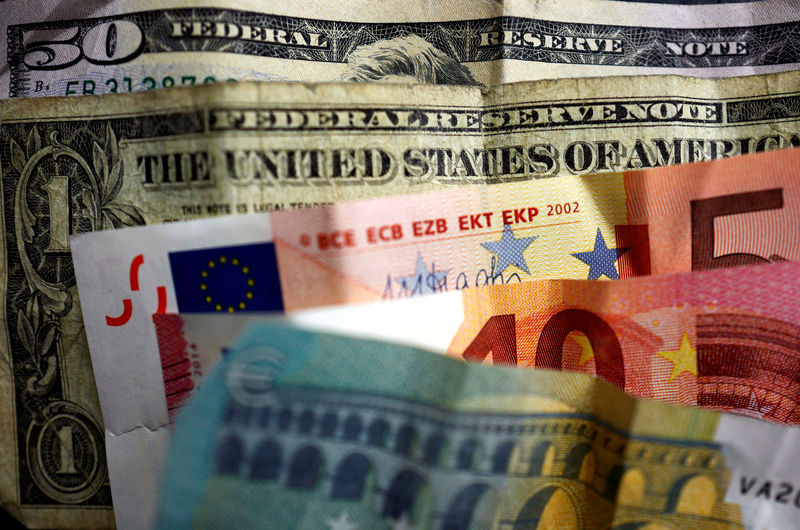
At 04:0 ET (08:20 GMT), EUR/USD slumped 0.3% to 1.0764, after falling as low at 1.0748 earlier in the session, a one-month low.
The single currency slumped Monday after the results from the European Parliament elections, which concluded on Sunday, showed eurosceptic nationalists made the biggest gains.
This prompted French President Emmanuel Macron to call a snap legislative election, taking a gamble to try to reestablish his authority by calling after sharp gains by far-right political rival Marine Le Pen.
“While Marine Le Pen’s National Rally party has shifted away from the anti-euro manifesto it ran on in 2017, fears about shifting support for Ukraine stand to unnerve markets,” said analysts at ING, in a note.
“EUR/USD may well have another leg lower to the 1.0700/0720 area once U.S. investors fully have a chance to appreciate events in European politics.”
The U.S. dollar edged lower Monday, handing back some of Friday’s strong gains, as traders awaited the latest Federal Reserve meeting as well as the release of the latest inflation data.
At 04:00 ET, the US Dollar Index, which tracks the greenback against a basket of six other currencies, traded 0.1% lower at 104.790.
The greenback received a boost late last week, climbing to a near one-month high, after data showed stronger than expected growth in nonfarm payrolls in May, reducing the perceived chances of rate cuts by the Federal Reserve this year.
Markets are now pricing in 36 basis points of Fed cuts this year compared to nearly 50 bps – or at least two cuts – before the jobs data.
The Fed concludes its latest two-day policy meeting on Wednesday, and is widely expected to leave rates unchanged.
The spotlight instead will be on comments from Chair Jerome Powell, any changes to economic projections, as well as key U.S. inflation data.
GBP/USD fell marginally to 1.2724, with sterling trading in a tight range ahead of the Bank of England’s next meeting later this month.
In Asia, USD/JPY traded 0.1% higher to 156.90, with the yen remaining weak even as gross domestic product data showed Japan’s economy shrank slightly less than expected in the first quarter.
But the economy still remained squarely in contraction.
The Bank of Japan meets later this week, and the central bank is expected to begin tightening policy by reducing its asset purchases. But how much the BOJ can tighten policy remains uncertain, given that the economy remains weak.
USD/CNY traded largely unchanged at 7.2477, with the pair remaining close to six-month highs as the Chinese economy continued to battle with an uneven economic recovery.
To read the full article, Click Here
